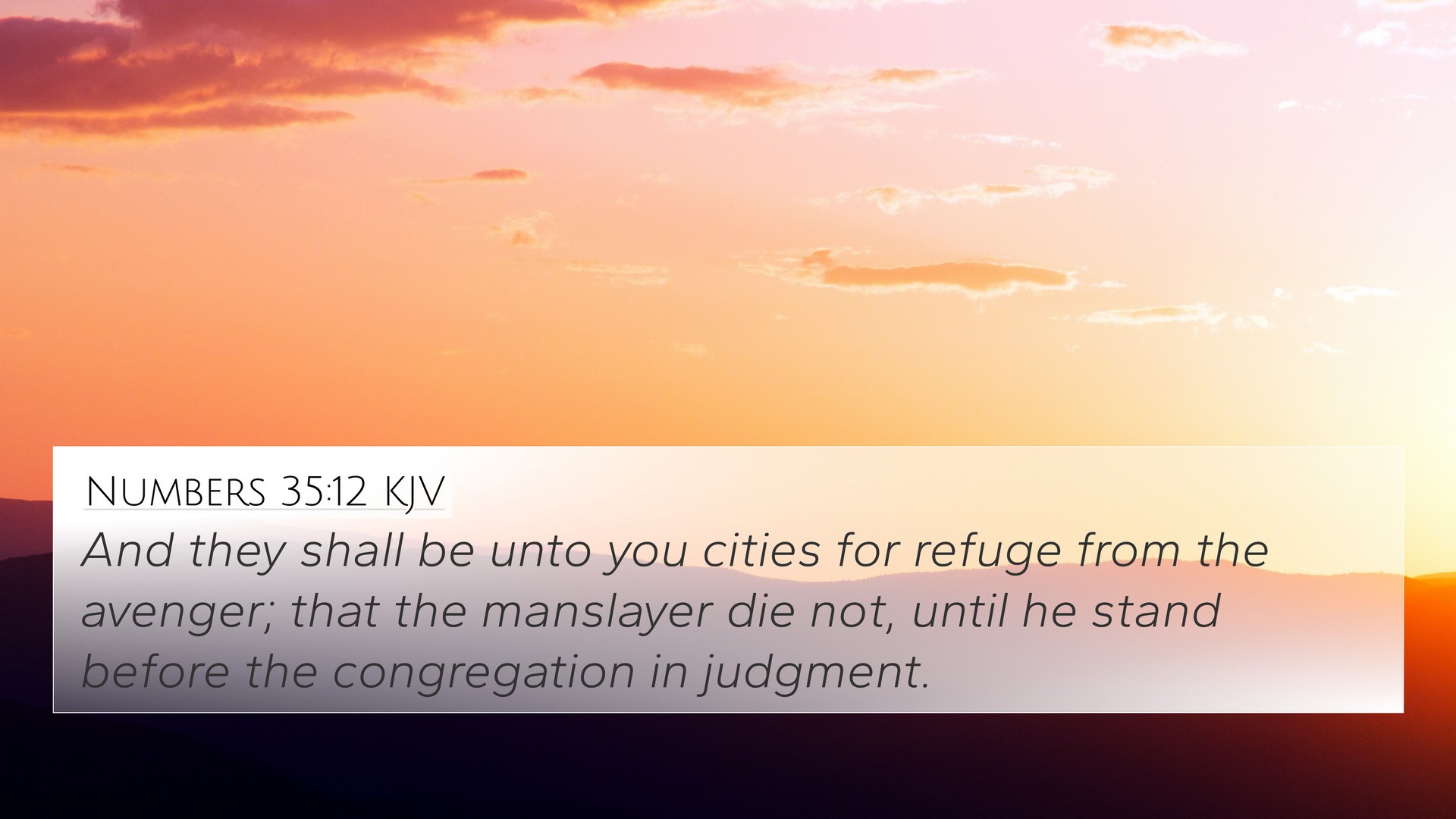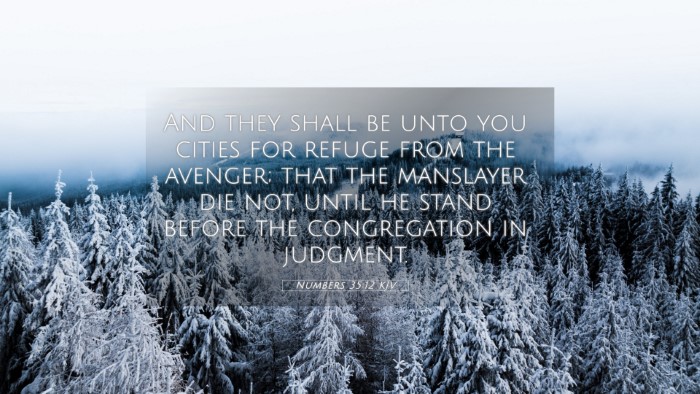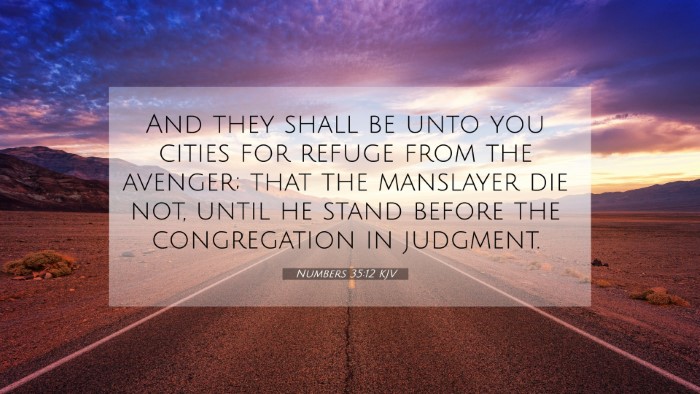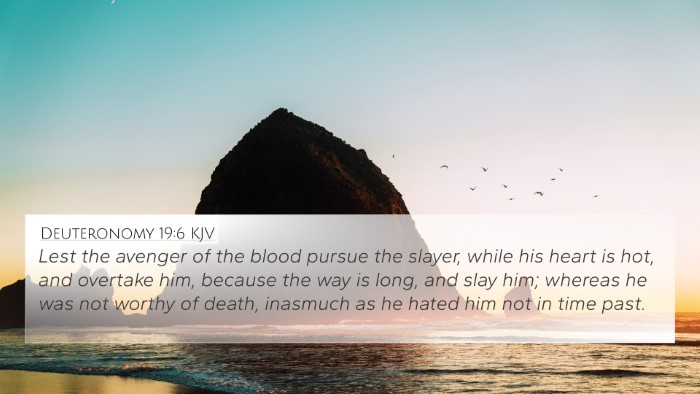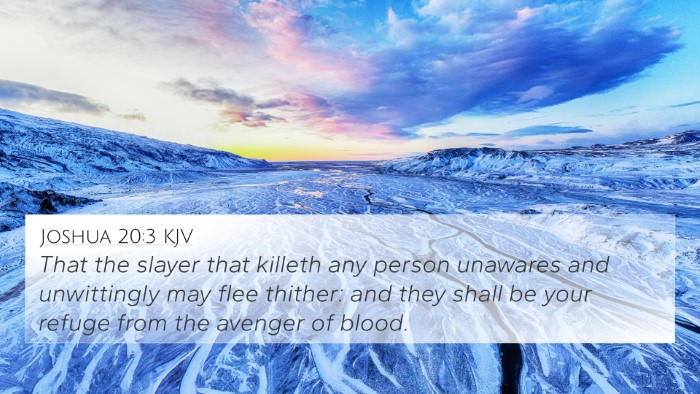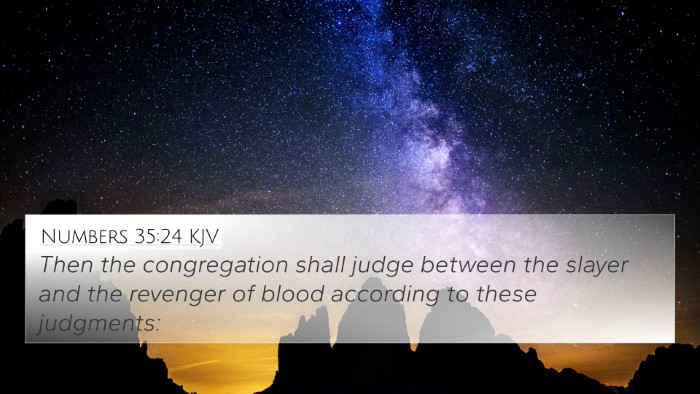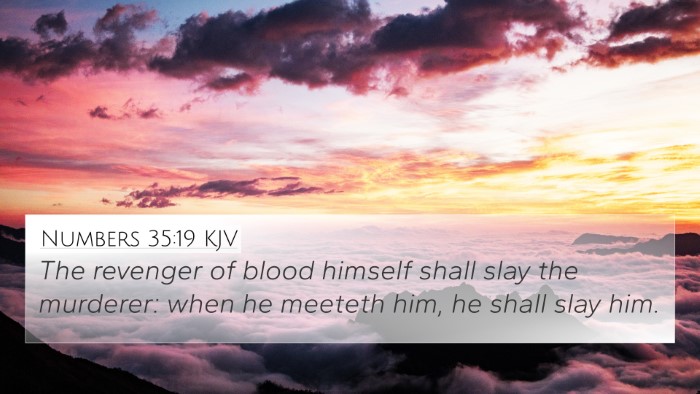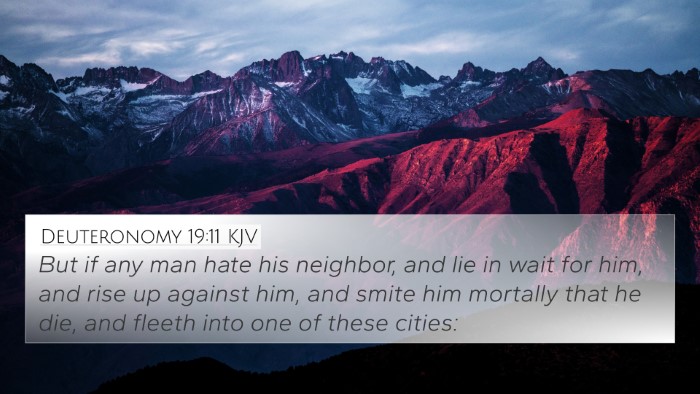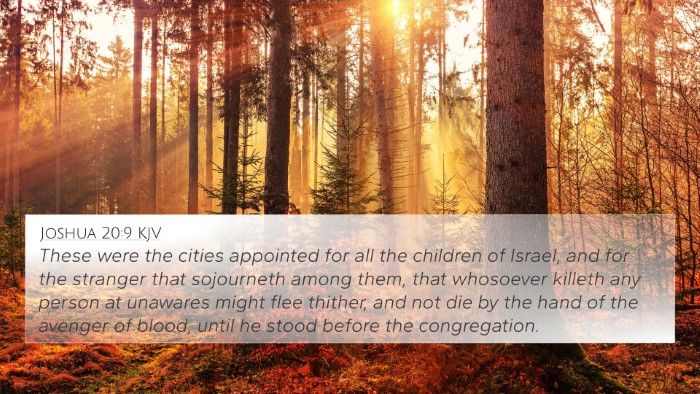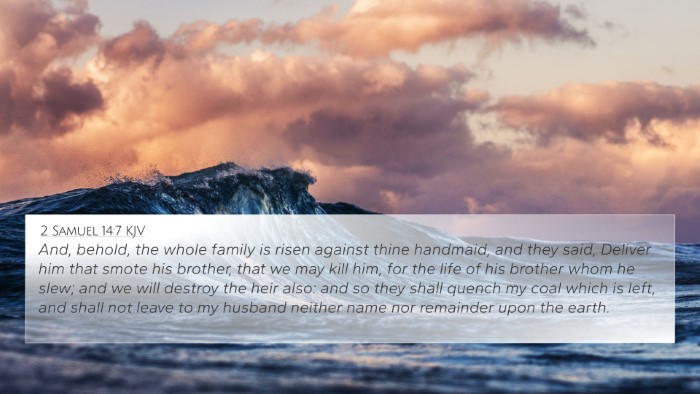Understanding Numbers 35:12
Verse: "And they shall be unto you cities for refuge from the avenger; that the manslayer die not, until he stand before the congregation in judgment." (Numbers 35:12, KJV)
Context and Overview
The book of Numbers, part of the Pentateuch, outlines various laws and regulations given to the Israelites during their wilderness journey. Chapter 35 specifically discusses the cities of refuge, established by God for individuals who unintentionally commit manslaughter. This verse emphasizes the sanctity of life and the need for justice over vengeance.
Key Themes and Insights
- Cities of Refuge: These cities serve as a sanctuary for those who have committed accidental homicide, reflecting God’s mercy and provision for justice.
- Protection from Vengeance: The avenger refers to a family member seeking retribution. The cities provide a means to avoid unjust bloodshed until a fair trial is held.
- Divine Order in Justice: This system demonstrates God’s concern for proper legal proceedings and the protection of innocent life.
Commentary Insights
Drawing from respected public domain commentaries, we can deepen our understanding of this verse:
- Matthew Henry: He emphasizes that the cities of refuge symbolize Christ as our ultimate refuge from judgment. Just as one may flee to these cities for safety, so too do we flee to Christ for refuge from sin and death.
- Albert Barnes: Barnes highlights that the implementation of these cities reflects God's justice. The provision for the manslayer to remain safe signifies the importance of intention in moral responsibility.
- Adam Clarke: Clarke notes the practical aspect of these cities, suggesting they were strategically placed to ensure accessibility for those in peril. He comments on God’s foresight in creating systems that protect the vulnerable while maintaining order.
Bible Verse Cross-References
To fully grasp the implications of Numbers 35:12, examining related verses can enhance our understanding:
- Exodus 21:13-14: "And if a man lie not in wait, but God deliver him into his hand; then I will appoint thee a place whither he shall flee." This verse establishes the principle of unintentional homicide.
- Deuteronomy 19:4-6: Defines the criteria for manslaughter and reinforces the importance of intention in assessing guilt.
- Psalm 9:9: "The Lord also will be a refuge for the oppressed, a refuge in times of trouble." This highlights God's role as a protector.
- Hebrews 6:18: "That by two immutable things, in which it was impossible for God to lie, we might have a strong consolation, who have fled for refuge to lay hold upon the hope set before us." This connects the concept of refuge to the New Testament promise in Christ.
- Matthew 5:21-22: Jesus expands on the law regarding murder, emphasizing the importance of reconciliation over anger and vengeance.
- Romans 12:19: "Dearly beloved, avenge not yourselves, but rather give place unto wrath: for it is written, Vengeance is mine; I will repay, saith the Lord." This reinforces the divine authority over justice.
- 1 Peter 2:23: "Who, when he was reviled, reviled not again; when he suffered, he threatened not; but committed himself to him that judgeth righteously." This connects to the theme of trusting in God's justice.
Thematic Connections
Each theme presented in Numbers 35:12 finds resonance throughout Scripture, allowing for comparative analysis and a deeper understanding of divine justice:
- Manslaughter and Intent: The necessity of determining intent in crimes is a recurring theme in Scripture, seen in both Old and New Testaments.
- God as Protector: Numerous verses affirm God as a fortress for those seeking sanctuary, establishing a consistent theological theme across the Bible.
- Judgment and Mercy: The delicate balance between judgment and mercy is explored throughout biblical texts, reflecting God’s justice system.
Importance of Cross-Referencing
Engaging with cross-references is vital for a comprehensive Bible study. Here are some methods and resources for effective cross-referencing:
- Bible Concordance: A tool that lists words and phrases, providing verses that contain those words, facilitating easier cross-referencing.
- Bible Cross-Reference Guide: Guides and reference materials help connect themes and verses across different books.
- How to Use Bible Cross-References: Focus on study methods that emphasize context, thematic relevance, and authorial intent.
Conclusion
In conclusion, Numbers 35:12 serves as a profound reminder of God’s justice and mercy. As we examine this verse, we should encourage a practice of inter-Biblical dialogue, where connections between Scripture deepen our understanding and enhance our spiritual growth. Utilizing tools for Bible cross-referencing enriches this process, allowing for a holistic view of God’s redemptive plan as revealed throughout His Word.
